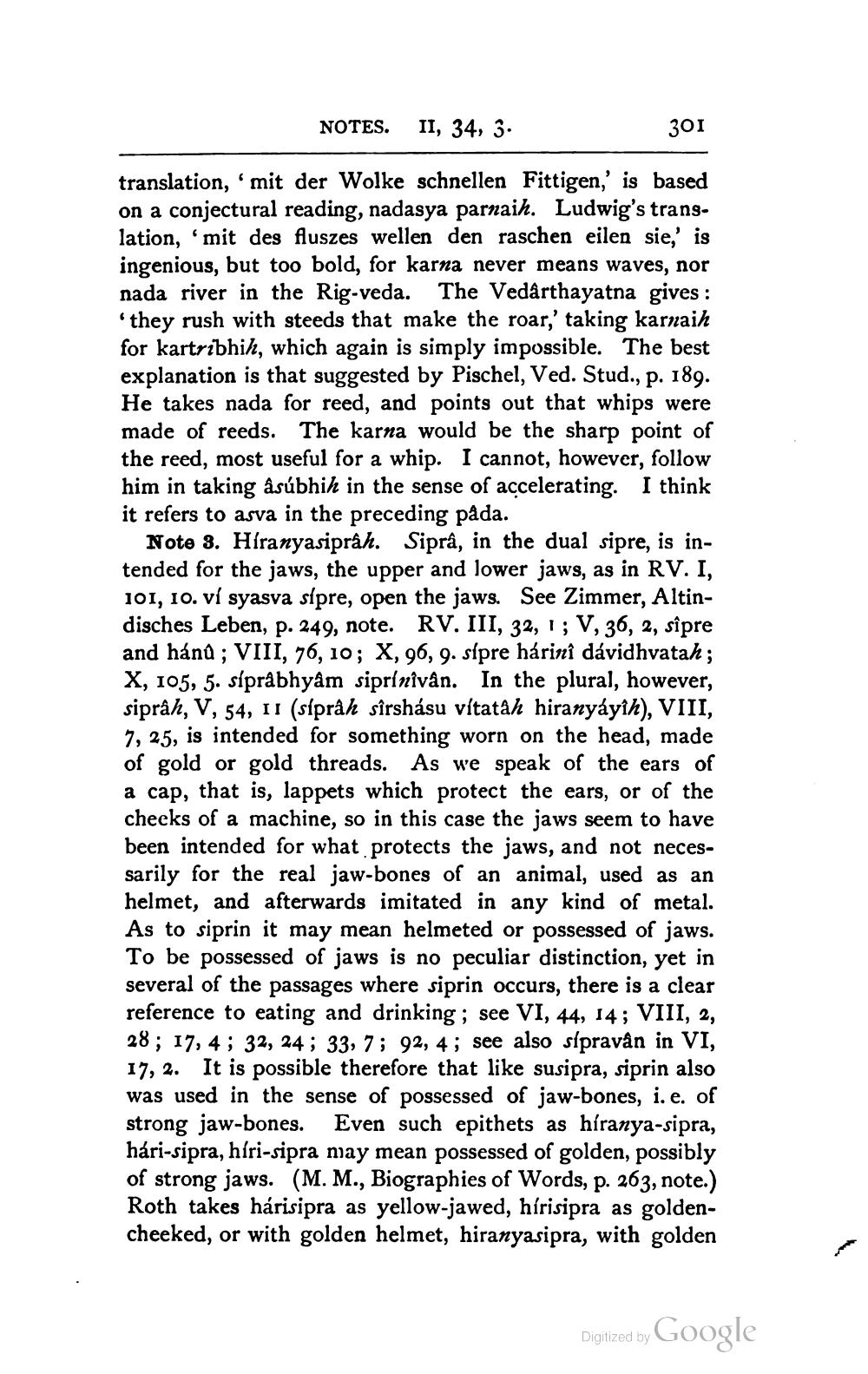________________
NOTES. II, 34, 3.
301
translation, ‘mit der Wolke schnellen Fittigen,' is based on a conjectural reading, nadasya parnaih. Ludwig's translation, mit des Auszes wellen den raschen eilen sie,' is ingenious, but too bold, for karna never means waves, nor nada river in the Rig-veda. The Vedârthayatna gives : 'they rush with steeds that make the roar,' taking karnaih for kartrıbhih, which again is simply impossible. The best explanation is that suggested by Pischel, Ved. Stud., p. 189. He takes nada for reed, and points out that whips were made of reeds. The karna would be the sharp point of the reed, most useful for a whip. I cannot, however, follow him in taking asubhih in the sense of accelerating. I think it refers to asva in the preceding pada.
Note 3. Híranyasiprâh. Siprâ, in the dual sipre, is intended for the jaws, the upper and lower jaws, as in RV. I, 101, 10. vi syasva sipre, open the jaws. See Zimmer, Altindisches Leben, p. 249, note. RV. III, 32, 1 ; V, 36, 2, sîpre and hand; VIII, 76, 10; X, 96, 9. slpre hárinî dávidhvatah; X, 105, 5. síprabhyam siprinivån. In the plural, however, sipråh, V, 54, II (siprah sîrshásu vitatah hiranyáyih), VIII, 7, 25, is intended for something worn on the head, made of gold or gold threads. As we speak of the ears of a cap, that is, lappets which protect the ears, or of the cheeks of a machine, so in this case the jaws seem to have been intended for what protects the jaws, and not necessarily for the real jaw-bones of an animal, used as an helmet, and afterwards imitated in any kind of metal. As to siprin it may mean helmeted or possessed of jaws. To be possessed of jaws is no peculiar distinction, yet in several of the passages where siprin occurs, there is a clear reference to eating and drinking ; see VI, 44, 14; VIII, 2, 28; 17, 4; 32, 24; 33, 7; 92, 4; see also sípravan in VI, 17, 2. It is possible therefore that like susipra, siprin also was used in the sense of possessed of jaw-bones, i.e. of strong jaw-bones. Even such epithets as híranya-sipra, hári-sipra, híri-sipra may mean possessed of golden, possibly of strong jaws. (M. M., Biographies of Words, p. 263, note.) Roth takes hárisipra as yellow-jawed, hírisipra as goldencheeked, or with golden helmet, hiranyasipra, with golden
Digitized by
Digilzed by Google




